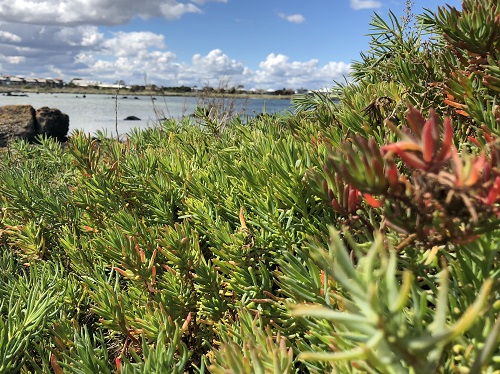Why we need a blue carbon investment roadmap
Media release
As the world's scientists research ways to slow the ongoing impact of climate change, blue carbon continues to surface as an effective natural climate solution.
However, uncertainty in almost every area - including social, governance, financial and technical - is proving challenging to overcome, according to Deakin's Blue Carbon Lab Director Professor Peter Macreadie.
In his research paper, Operationalising marketable blue carbon, published today in the prestigious One Earth journal, Professor Macreadie says despite the science clearly showing the promise of blue carbon, as well as the enthusiasm by government and industry alike, few blue carbon projects are being implemented on the ground.
Professor Macreadie says the solution, however, is relatively straight forward - starting with an easy-to-follow roadmap.
"While the science clearly shows the high potential of blue carbon to mitigate climate change, it has not been widely operationalised as a natural climate solution," said Professor Macreadie. "The barriers lie in misunderstanding and confusion across all sectors. A strategic roadmap is needed to design blue carbon projects that are beneficial to both the natural environment and society, in a way that is scalable, replicable and cost-effective.
"We do not want to forgo the benefits or miss the opportunities to capture this natural resource simply because there is a lack of understanding as to what blue carbon is and how it works."
Blue carbon is carbon captured by marine and coastal ecosystems. As carbon dioxide and greenhouse gases increase in the atmosphere causing negative impacts on the planet, blue carbon provides a natural way of capturing and locking carbon back into marine plants and sediments.
Mangroves, tidal marshes and seagrasses capture and hold on to carbon, serving as natural 'carbon sinks'. Most of the carbon stored in these ecosystems is kept underground and may be thousands of years old.
Due to their high carbon sequestration rates, exceptionally long-term burial and valuable services to people and nature (e.g. coastal protection, fish production, biodiversity enhancement), blue carbon ecosystems are increasingly being appreciated, but not always well understood.
"It's how those benefits are incentivised that’s one of our challenges", said Professor Macreadie. "These ecosystems do so much for human prosperity, but this isn’t well-recognised within governments and societies, which is a reason why they have faced global decline largely due to unsustainable coastal development."
To overcome the uncertainty of how to operationalise blue carbon projects, a team of experts prepared a roadmap with the key actions that should be tackled to effectively begin implementing climate solutions.
The research included contributions from world-leading economists, policy specialists, engineers, social scientists, ecologists, mathematicians, biogeochemists and carbon market specialists.
Together, they identified the main social, governance, technical and finance challenges that need to be addressed:
- Improving policy and legal arrangements to ensure equitable sharing of financial and other benefits;
- Improving stewardship by incorporating indigenous knowledge and values; clarifying property rights;
- Reviewing and investigating financial approaches and accounting tools to better incorporate co-benefits;
- Developing technologies (e.g. sensors) and computational tools (e.g. artificial intelligence) for measuring blue carbon sequestration at low cost;
- and improving our understanding of lesser-known aspects of the blue carbon cycle (e.g. seaweed contributions).
"Now that we have identified the barriers, and designed a research roadmap to overcome them, we can address these actions and move to operationalise blue carbon," said Professor Macreadie.
"This will not only achieve measurable changes to greenhouse gas concentrations, but will provide multiple co-benefits, deliver on several UN sustainable development goals, and address national obligations associated with international agreements."

